
October 24 & 25 | Bloomington, Illinois
2019 Conference Program
Thank you to the more than 250 participants who joined us to dig into the issues, hear from experts, and build relationships on October 24 & 25 in Bloomington, Illinois. During the conference, we held a breakfast and office hours for the Community Revitalization Challenge, an initiative to connect community organizations and financial institutions.
View the full conference program book »
Check out photos from the conference »
Presentations
Workshop presentations are available for selected speakers; click through below to download the slides.
General Sessions
Opening Plenary
Segregation in the Heartland
Brian Charles & Dan Vock, formerly of Governing Magazine
Download presentation slides »
Even though Congress outlawed overt housing discrimination a half-century ago, residential segregation persists strongly today. Why are so many cities and metropolitan areas still split along racial lines, and what is the role of local government in reinforcing those divides? To answer these questions, Governing magazine conducted a six-month investigation of Black-White segregation in Illinois cities outside the Chicagoland area, including Bloomington-Normal, Champaign-Urbana, Decatur, Kankakee, Peoria, and Springfield. They found that segregation is a common feature in smaller metro areas, although it may be more pronounced in major metropolitan areas, and looked at how common problems in local government exacerbate the issue. During this opening plenary session, reporters Brian Charles and Dan Vock will discuss their findings and explain how segregation in Midwestern cities provides a lens for viewing much larger patterns across the nation.
Annual Membership Meeting
Download presentation slides »
During our annual membership meeting, members will vote for Directors to guide our organization and hear from staff about our recent work, goals for the coming year, and ways you can be more involved. We will share updates on the Community Revitalization Challenge, an initiative we launched last year to foster collaboration between community-based organizations and financial institutions, including spotlights from three groups whose projects have moved forward. Everyone is welcome to join us for this meeting, whether or not you or your organization are official Housing Action members.
Afternoon Keynote
Getting Illinois’ Fiscal House in Order
Drazzel Feliu, Center for Tax and Budget Accountability
Download presentation slides »
Join Drazzel Feliu, Research Director of the Center for Tax and Budget Accountability, as he helps unpack Illinois’ current fiscal situation. Feliu will walk us through Illinois’ structural deficit and explain how the Fair Tax referendum, if successful, can help us ensure everyone pays their share, boost the middle class, and increase much-needed revenue for the state. Because our state constitution requires a flat income tax, Illinois has long had one of the most unfair income tax systems in the country and been unable to adequately support programs and services that strengthen communities, including public education, healthcare, and housing. After many years of effort, voters will have the opportunity during the November 2020 election to decide whether a Fair Tax is right for Illinois. Learn what is at stake for Illinois and how a Fair Tax can help get our state’s fiscal house in order.
Closing Plenary
Illinois Deputy Governor Sol Flores
Sol Flores serves as deputy governor in the Pritzker administration overseeing Health and Human Services. Flores is the founding Executive Director of La Casa Norte, a nonprofit organization established in 2002 that has served more than 30,000 youth and families confronting homelessness. Flores built La Casa Norte from two employees to an 80+ employee, multi-million-dollar organization that delivers inspiration, hope, and critical services to the lives of youth and families experiencing homelessness. She has served on numerous working groups, commissions, and local nonprofit boards as a tireless advocate. Flores was raised by a single mother who came to Chicago from Puerto Rico, and she has been recognized as a national Champion of Change for her work by the Obama White House.
Affordable Housing Development
Workshop I
Preserving Rental Housing in Rural Illinois
Russell Kaney, Enterprise Community Partners
Download presentation slides »
Download presentation handouts »
Illinois has over 500 projects in rural communities across the state that house families, seniors, and people with disabilities that have an annual average household income of less than $1,000 per month. The current lender for these projects is the Rural Development Agency of the United States Department of Agriculture (USDA), but the number of projects and units across Illinois is in decline. Maturing mortgages force developments to lose their subsidies and rental assistance. Who will house this rural population in the future? Join us to discuss possible paths forward.
Workshop II
Is This Deal a Go or No Go?
Larry Pusateri, Lightengale Group
Affordable housing projects require significant government subsidy. That subsidy can only pay for a small number of needed projects. Pursuing a deal takes tremendous time and money, which is at risk until the subsidy is secured. In this interactive session, we will play the game “Do You Take This Deal?” in which we will present details about potential projects and ask the audience why they would—or wouldn’t—pursue and start spending money on that deal. This session will highlight challenges such as scoring through IHDA’s QAP, zoning restrictions, market demand, site control risk, and other feasibility considerations.
Workshop III
Breaking Ground with Opportunity Zones in Illinois
Mohammed Elahi, Cook County Bureau of Economic Development
Download presentation slides »
The Opportunity Zones incentive is a new community investment tool established by Congress in the Tax Cuts and Jobs Act of 2017 to encourage long-term investments in low-income rural and urban communities nationwide. In Illinois, there are 327 areas—both rural and urban—that have been declared Opportunity Zones. What projects are eligible for this program, and who has been taking advantage of it in our state? Join us to hear about an initiative already underway in Chicago and about efforts to generate more proposals in other regions. Bring your questions on how this program can be leveraged to expand affordable housing development in underserved communities.
Workshop IV
Innovations to Lower the Cost of Construction
Nicole Seidlitz, Chicagoland Habitat for Humanity; Sarah Brune, NHS of Chicago; Amy Mayer, Related Midwest
Download presentation slides »
Construction costs are on the rise across the country, resulting in fewer new-construction affordable housing units. This has become a particular challenge for single-family homes and small multi-family buildings, where margins are already thin and tax credits are scarce. This roundtable discussion will focus on the many reasons for rising construction costs and ask developers to share their expertise with advocates who are working to combat this issue. All developers, builders, and housing advocates with an interest in lowering construction costs are invited to attend. NHS Chicago and Related Midwest will bring lessons learned from a recent design competition aimed at providing an affordable new-construction starter home product for working families that can be replicated across the state.
Ending Homelessness
Workshop I
Forging New Partnerships: Housing & Healthcare
Carlos R. DeJesús Rivera, Center for Housing and Health; Julie Nelson, CSH; Armando Smith & Patricia Stokes, Housing Forward
Download presentation slides (Part I) »
Download presentation slides (Part II) »
In this session, we will build on past conference conversations about the intersection between housing and health. Through case examples, we will examine the building blocks of a housing and healthcare partnership and discuss both successes and challenges of these collaborations. Hear from CSH and Center for Housing and Health about the Chicago and Cook County Flexible Housing Pool, which is intended to help create new units of supportive housing and utilize non-traditional funding sources. Hear from Housing Forward about their partnerships with Cook County Hospital and Health System and MacNeal Hospital, which are different in terms of populations served and organizational roles, but which share a common goal: providing housing to improve healthcare outcomes. We will open up the conversation for participants to discuss their organization’s involvement or plans to partner with medical providers.
Workshop II
Helping Schools House Families
Katie Spoden, The Alliance to End Homelessness in Suburban Cook County; Dr. Shawn Schleizer, East Maine Elementary School District 63; Tom Bookler, North Cook Intermediate Service Center; Sonia Ivanov, Northwest Compass; Christi Wessel, Office of State Representative Michelle Mussman
Download presentation slides »
Join us to learn about an Illinois law passed in 2017 (HB 261) to support families with school-age children who are experiencing or on the verge of homelessness. By allowing school districts to use a portion of their transportation funding to help families stay in a home or secure new stable housing, the law helps children continue their education without interruption and builds partnerships between schools and Continuum of Care agencies. Schools are enabled to provide financial assistance and other services while saving on transportation costs for McKinney-Vento Homeless students. We will discuss the process of creating and passing the law, share a toolkit for schools and Continuum of Care agencies to use for implementation, and hear interviews with several families that have already been helped.
Workshop III
Local Government & Nonprofit Partnerships: Peoria Rehousing Case Study
Joe Dulin & Kathryn Murphy, City of Peoria; Thomas Fulop, Peoria Salvation Army
Download presentation slides »
Last year, a municipal declaration in Peoria deemed a 96-unit apartment building unfit for human habitation based on the neglect of the landlord. The City of Peoria’s Community Development Department and the Salvation Army immediately launched a rehousing program, and within four days, all residents had received rehousing assistance, circumventing what could have been a dire case of high-volume, acute homelessness. Afterwards, partners agreed a more structural solution should be created for future responses. The City and community partners developed a rehousing program through which a nonprofit agency is “on call” for emergency situations. This allows other housing providers to continue focusing on preventative—rather than triage-driven—programs. Join us to learn about the program’s structure and funding.
Workshop IV
Working with a “By-Name” List to End Homelessness in Your Community
Brenda O’Connell & Yareli Salgado, Lake County Coalition for the Homeless
Download presentation slides »
The magic of a homeless “by-name” list is its ability to drive system change while focusing on the individuals experiencing homelessness. The Lake County Coalition for the Homeless uses a real-time list of people experiencing homelessness across their continuum of care as a tool to connect people with housing and services, understand system performance, and drive improvement efforts. In 2019, the Coalition became the tenth community in the country to achieve the Built for Zero campaign’s functional zero benchmarks for veteran homelessness. At this session, leaders from Lake County will share how to develop a “by-name” list and discuss how they have used this tool to transform their homeless system.
Housing Counseling
Workshop I
Please Try This at Home: Ideas for Your Agency
Sandy Deters, Embarras River Basin Agency; Maria Campos & Guillermina Leon, LUCHA; Jimmy Thomas, Northwest Side Community Development Corporation
Download presentation slides (Part I) »
Download presentation slides (Part II) »
Download presentation handout »
Learn how the Northwest Side Community Development Corporation (a subsidiary of the Northwest Side Housing Center) launched a replicable landlord-tenant match and incentive program, Viviendo Unidos, which helps landlords find responsible tenants while helping tenants find quality, fair market-rate housing, and offers a money-back incentive to all participants. Hear how Embarras River Basin Agency educates clients on home maintenance and reducing energy bills by offering them a kit with smart strips and LED bulbs and discussing their eligibility for grants and low-interest loans. Finally, LUCHA will talk about making services more accessible to deaf and hard-of-hearing individuals, as well as the programming needs of deaf and hard-of-hearing homebuyers and what a model for full inclusion and service delivery looks like.
Workshop II
Understanding the True Cost of Housing Counseling
Jennifer Pallas, Housing Action Illinois
Download presentation slides »
Download presentation handout »
When you sit down to write a grant proposal, how do you know what to ask for? Does it make sense for your agency to expand and offer a new service? Can you cover your costs? How do you know if your program is successful? These kinds of questions are hard to answer without a clear understanding of the true cost of housing counseling. Join us to find out how to calculate the actual cost of providing service and how much you should be charging funders and clients. You will also learn tips for tracking grants and reporting to funders.
Workshop III
Program Implementation: Putting New Skills & Ideas to Work
Jo Albert, H.O.M.E. DuPage; Willie Heineke, Housing Action Illinois; Mary Pille, Junior Achievement
Download presentation slides (Part I) »
Download presentation slides (Part II) »
Knowing the importance of learning new skills and keeping up with trends, we often spend money on expensive housing counseling trainings—but can be at a loss for what to do with new knowledge and ideas once we return to our offices. Join us to hear different perspectives on how to upgrade your programming after you acquire a new skill. H.O.M.E. DuPage will talk about how they added student loan counseling to their offerings, Housing Action Illinois will discuss options for bringing on an AmeriCorps VISTA to help build capacity in a sustainable way, and Junior Achievement will talk about getting into schools to meet with students and their families on their terms.
Workshop IV
Updates from HUD & IHDA: State & Federal Programs to Help Housing Counselors
Cheryl Lombré, Jerry Mayer & Melissa Noe, HUD; Amy Bashiti, IHDA
Download presentation slides (Part I) »
Download presentation handout (HUD) »
Download presentation slides (Part II) »
Download presentation handout (IHDA) »
Do you know about all of the programs and resources from the U.S. Department of Housing and Urban Development (HUD) and Illinois Housing Development Authority (IHDA) that might benefit your organization? Join us to get a better understanding of the opportunities offered by federal and state programs designed to support and revitalize communities. Learn how specific HUD programs will be affected by the Certification Final Rule, and join us for a digital tour of the HUD Exchange, where organizations can find helpful toolkits. Then, hear from IHDA on how to utilize their offerings to identify, address, and fund housing opportunities within a community revitalization framework.
Public Policy Advocacy
Workshop I
Acting on Segregation in the Heartland
Moderator: Anne Houghtaling, HOPE Fair Housing Center
Join us for an action-oriented roundtable in response to our opening plenary session on segregation in small and mid-sized cities in Illinois. We will hear from community partners in the cities that Vock and Charles investigated, as well as from leaders in other communities, and strategize around policies and practices that can implemented to address racial residential segregation and build equity across Illinois. Part of the discussion will also cover fair housing and fair lending education and enforcement activities occurring throughout the state, and what more needs to be done. Come prepared to share your questions, ideas, and concerns.
Workshop II
Bold Federal Housing Proposals
Brooke Schipporeit, National Low Income Housing Coalition
Download presentation slides »
Affordable homes are built with ballots every bit as much as they are built with bricks and drywall. As 2020 approaches, affordable housing has become a hot topic for presidential candidates, and ambitious legislative proposals have been put forth. Join us to learn the key points of major federal bills and discuss which proposals directly address the underlying cause of the affordable housing crisis—the severe shortage of affordable rental homes for people with the lowest incomes. We will also discuss how you can join the Our Homes, Our Votes: 2020 campaign to mobilize more low-income renters and affordable housing advocates to get involved in voting.
Workshop III
Getting Started: A Toolkit for Local Affordable Housing Advocacy
Sue Loellbach, Connections for the Homeless
Download presentation slides (Part I) »
Working on the local level opens up many opportunities for creating more affordable homes. Join us to learn about starting a movement for more affordable housing in your community. We will share a new toolkit, based on CMAP’s Homes for a Changing Region, that can help get your advocacy group off the ground. We will cover how-to’s and resources for defining the need for housing, engaging municipal staff and officials in discussion, and tangible goals to work toward, such as getting a housing commission established and creating an affordable housing plan. We will also discuss adapting strategies and processes to communities with different needs.
Workshop IV
A Fair Chance at Housing
Moderator: Gianna Baker, Chicago Area Fair Housing Alliance; Speakers: Maria Moon, Chicago Area Fair Housing Alliance; Nancy Firfer, Metropolitan Planning Council; Marketta Sims, Restoring Rights and Opportunities Coalition of Illinois & Cabrini Green Legal Aid; Kate Walz, Shriver Center on Poverty Law
Download presentation slides (Part I) »
Download presentation slides (Part II) »
Download presentation slides (Part III) »
People with arrest or conviction records, like everyone else, deserve a place to call home. But it can be almost impossible for them to find an apartment or house to rent. Join us to learn about recent efforts and successes in the movement to expand housing opportunities for people with records. Leaders from the Just Housing Initiative will reflect on the recent landmark passage of fair housing protections for people with records in Cook County, and the Restoring Rights and Opportunities Coalition of Illinois will discuss recently passed protections on the state level. Experts will also discuss reasonable accommodations for people that have a record related to their disability and a pilot program from the Illinois Housing Development Authority.
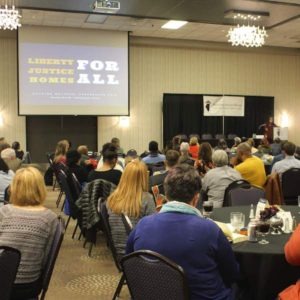
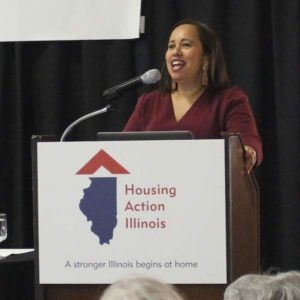
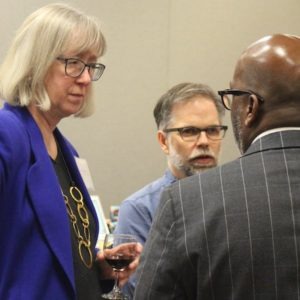
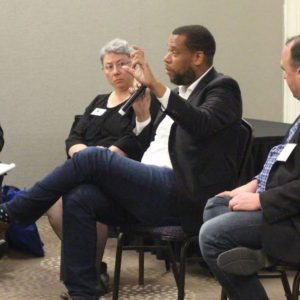
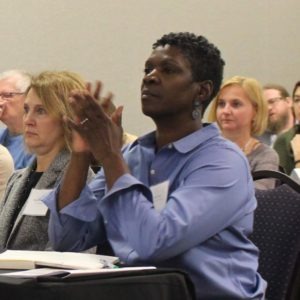
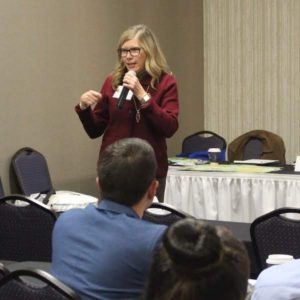
2019 Housing Matters! Conference Sponsors
Thank you to our generous sponsors for helping to make the 2019 Housing Matters! Conference possible.
Gold Sponsors
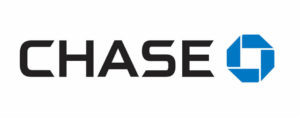
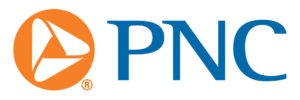
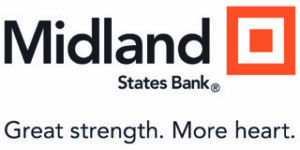

Silver Sponsors


Bronze Sponsors



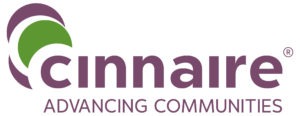

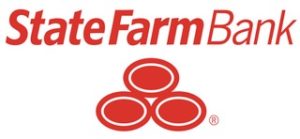

Breakfast Sponsor

Exhibitors
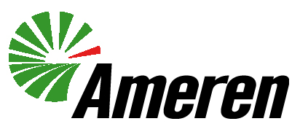

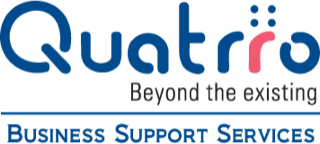
Thank You
Thank you to all of the speakers, sponsors, exhibitors, and conference attendees that participated in the 2019 Housing Matters! Conference and helped to make it a success.
